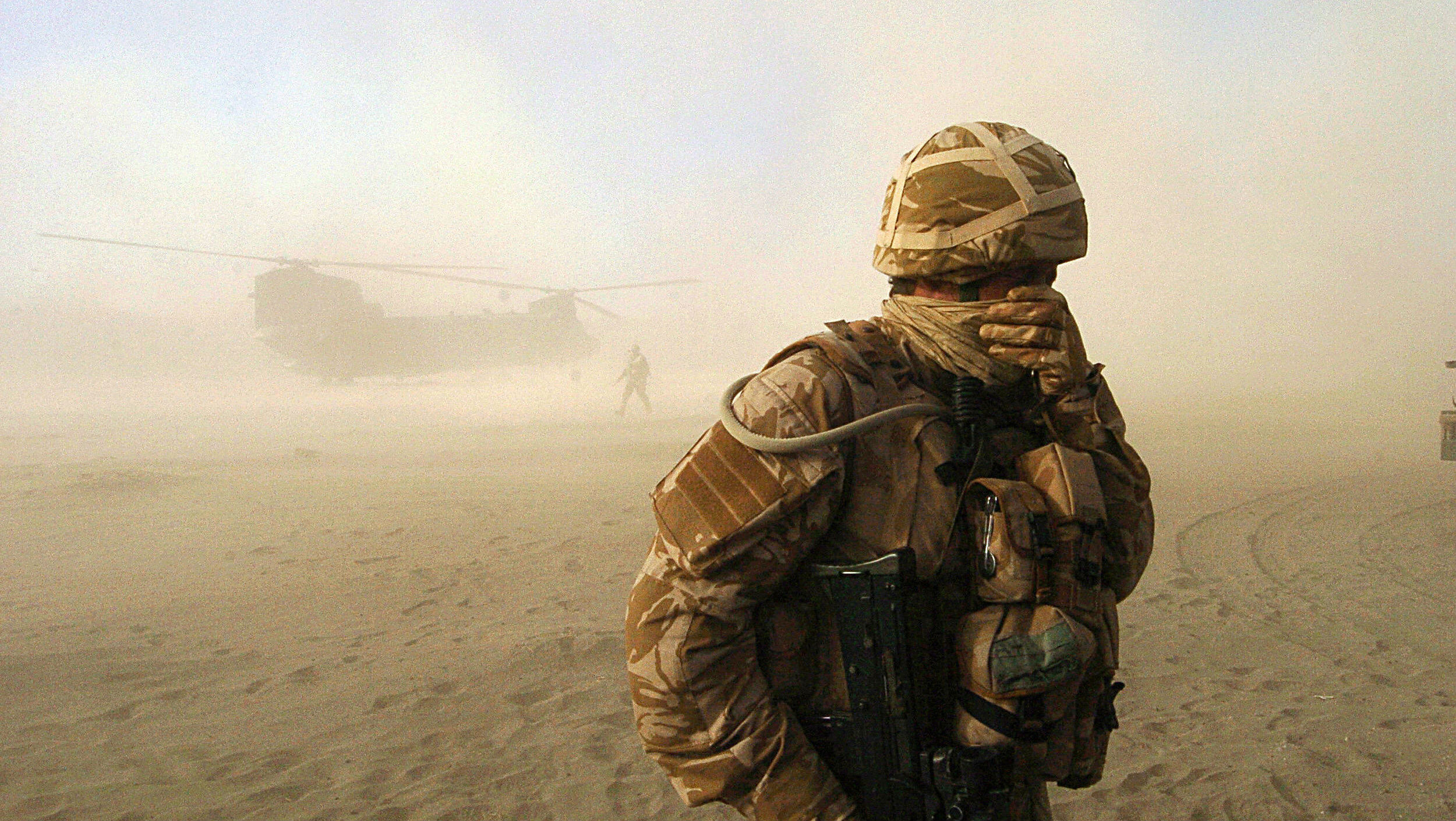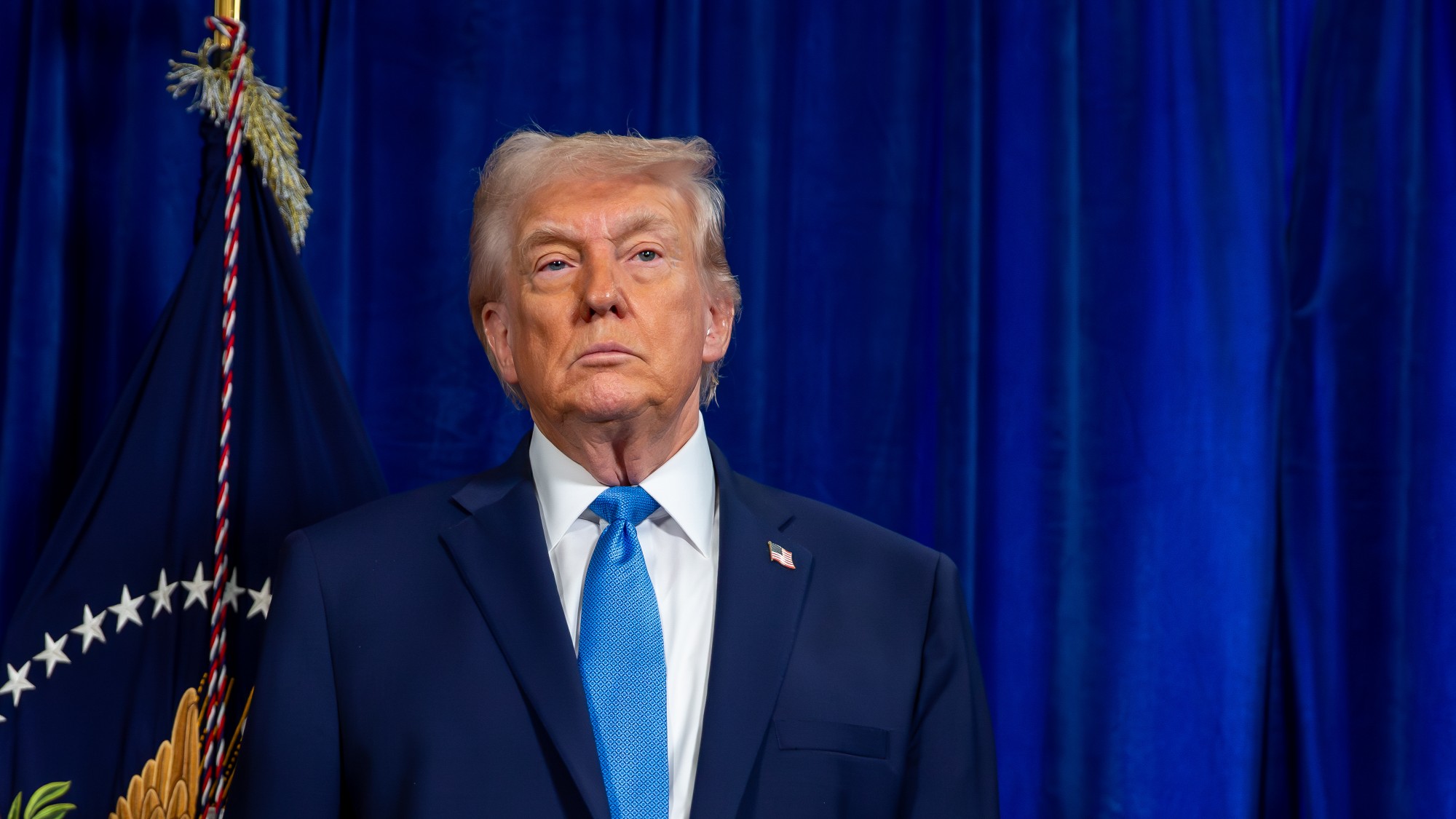Troops to 'opt out' of human rights laws
Defence Secretary Michael Fallon claims legal system has been abused on an 'industrial scale'

A free daily email with the biggest news stories of the day – and the best features from TheWeek.com
You are now subscribed
Your newsletter sign-up was successful
Prime Minister Theresa May plans to let the British military "opt out" of two sections of the European Convention on Human Rights to protect soldiers from what she called an "industry of vexatious claims that has pursued those who served in previous conflicts".
The policy, due to be announced today at the Conservative Party conference, would mean that "in future conflicts, subject to a vote of both Houses of Parliament, the UK would 'derogate' from Article two (right to life) and Article five (right to liberty) of the ECHR", the BBC reports.
According to the government, much of the litigation faced by the Ministry of Defence is filed under those two sections of the act.
The Week
Escape your echo chamber. Get the facts behind the news, plus analysis from multiple perspectives.

Sign up for The Week's Free Newsletters
From our morning news briefing to a weekly Good News Newsletter, get the best of The Week delivered directly to your inbox.
From our morning news briefing to a weekly Good News Newsletter, get the best of The Week delivered directly to your inbox.
"About £100m has been spent since 2004 dealing with thousands of cases lodged against soldiers who served in Iraq," says The Times. "Senior military officials warn the convention's extension on to the battlefield over the past two decades risks undermining operations because soldiers will be too wary of taking risks."
The Daily Telegraph describes the policy change as a "major victory for soldiers, MPs and senior military figures who have fought against the hounding of troops who served in Iraq and Afghanistan".
Defence Secretary Michael Fallon said existing laws are open to abuse, and have "caused significant distress to people who risked their lives to protect us".
The system "has cost the taxpayer millions and there is a real risk it will stop our armed forces doing their job", he added. "Our legal system has been abused to level false charges against our troops on an industrial scale."
A free daily email with the biggest news stories of the day – and the best features from TheWeek.com
But the policy change was "immediately criticised by human rights groups who said it was based on a false narrative of spurious lawsuits", The Guardian says.
Martha Spurrier, the director of human rights group Liberty, says the majority of claims faced by the Ministry of Defence (MoD) were connected to protections that cannot be suspended.
"The MoD has been forced to settle hundreds of cases of abuse, which speaks to mistreatment on the battlefield that we should be trying to eradicate, not permit," she told The Guardian.
Britain, along with Ireland, France, Greece and Turkey, has previously suspended parts of the act to deal with domestic terrorism or unrest, the Times reports, but "this would be the first time that any ECHR signatory has done so for military action abroad".
-
 Touring the vineyards of southern Bolivia
Touring the vineyards of southern BoliviaThe Week Recommends Strongly reminiscent of Andalusia, these vineyards cut deep into the country’s southwest
-
 American empire: a history of US imperial expansion
American empire: a history of US imperial expansionDonald Trump’s 21st century take on the Monroe Doctrine harks back to an earlier era of US interference in Latin America
-
 Elon Musk’s starry mega-merger
Elon Musk’s starry mega-mergerTalking Point SpaceX founder is promising investors a rocket trip to the future – and a sprawling conglomerate to boot
-
 Epstein files topple law CEO, roil UK government
Epstein files topple law CEO, roil UK governmentSpeed Read Peter Mandelson, Britain’s former ambassador to the US, is caught up in the scandal
-
 Iran and US prepare to meet after skirmishes
Iran and US prepare to meet after skirmishesSpeed Read The incident comes amid heightened tensions in the Middle East
-
 Israel retrieves final hostage’s body from Gaza
Israel retrieves final hostage’s body from GazaSpeed Read The 24-year-old police officer was killed during the initial Hamas attack
-
 China’s Xi targets top general in growing purge
China’s Xi targets top general in growing purgeSpeed Read Zhang Youxia is being investigated over ‘grave violations’ of the law
-
 Panama and Canada are negotiating over a crucial copper mine
Panama and Canada are negotiating over a crucial copper mineIn the Spotlight Panama is set to make a final decision on the mine this summer
-
 Why Greenland’s natural resources are nearly impossible to mine
Why Greenland’s natural resources are nearly impossible to mineThe Explainer The country’s natural landscape makes the task extremely difficult
-
 Iran cuts internet as protests escalate
Iran cuts internet as protests escalateSpeed Reada Government buildings across the country have been set on fire
-
 US nabs ‘shadow’ tanker claimed by Russia
US nabs ‘shadow’ tanker claimed by RussiaSpeed Read The ship was one of two vessels seized by the US military